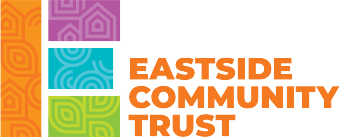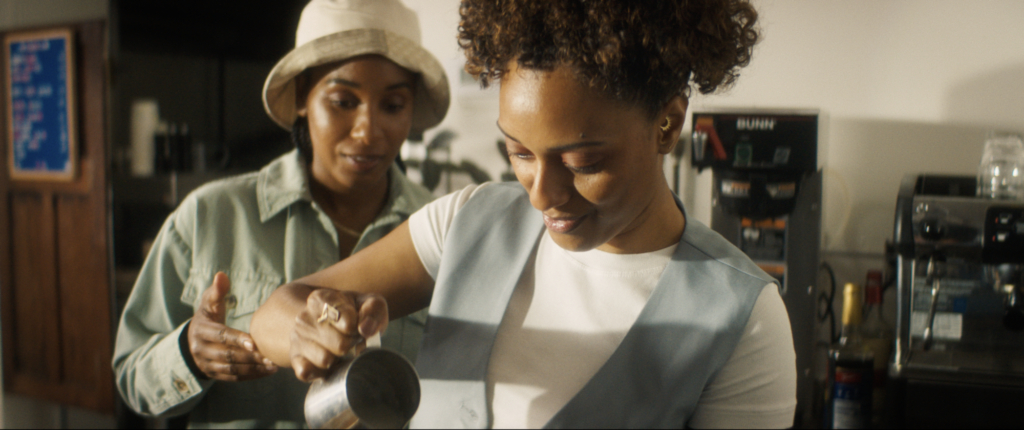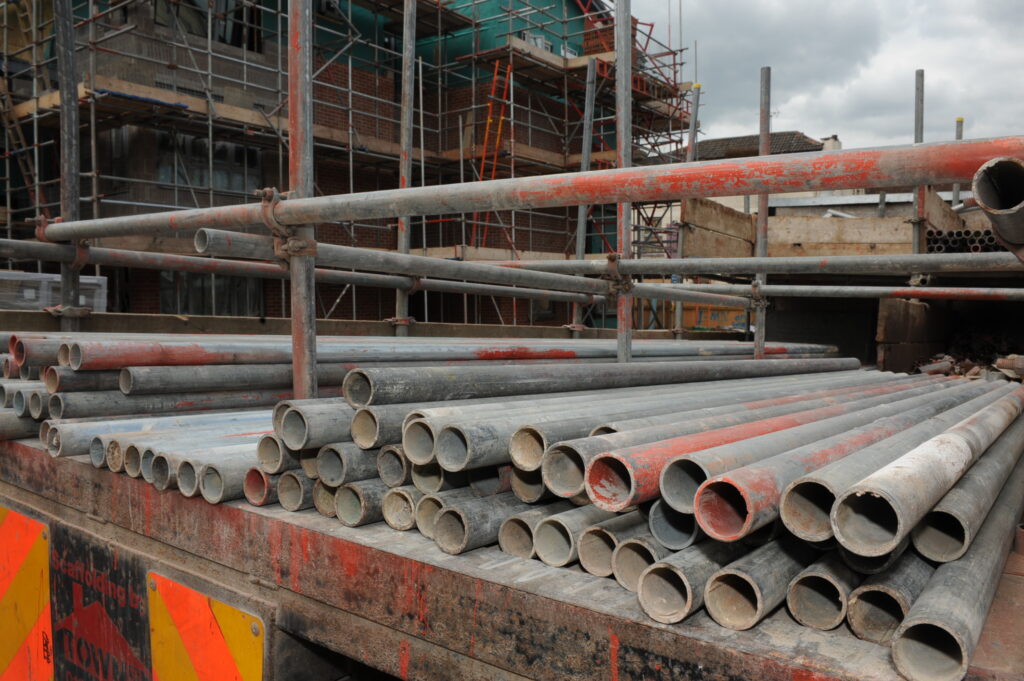Easton Community Centre, Disabled People and that dreaded lift.
Memories of Ruth Pickersgill
Easton Community Centre was built in 1989 after a management committee of local residents (Easton Community Association), (including Lil Stiddard, who supported the Centre until her 100th birthday), had a vision for a state of the art community resource, and raised the funds, employed the architect and the contractors. There had been a temporary centre before that, and during the building activity, the nursery was based at Tudor Road Church and most activities were in All Hallows Hall. I was the Treasurer and was on maternity leave, so I remember many meetings on site with my daughter in a moses basket.
One of the priorities for residents was that the building was fully accessible to Disabled people, as few buildings at that time were, and a key issue in the building process was the lift, which the Management Committee felt was not installed according to the plans, and was the wrong way round to accommodate larger wheelchairs. It is amazing that after more than 30 years Eastside Community Trust has secured the funding to sort out this ‘snag’.

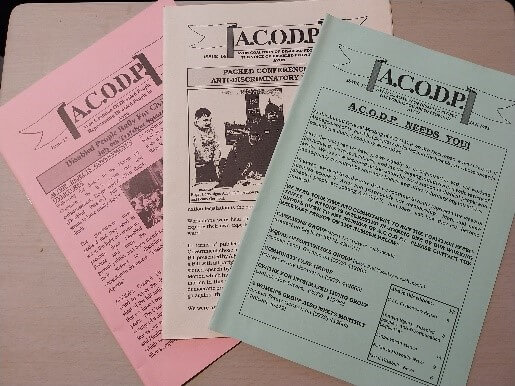
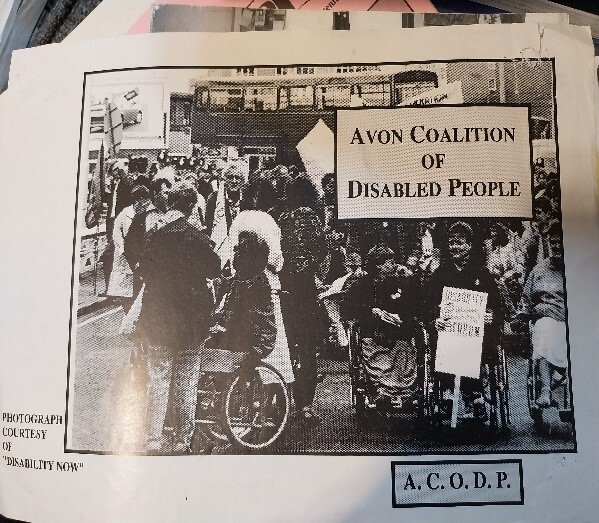
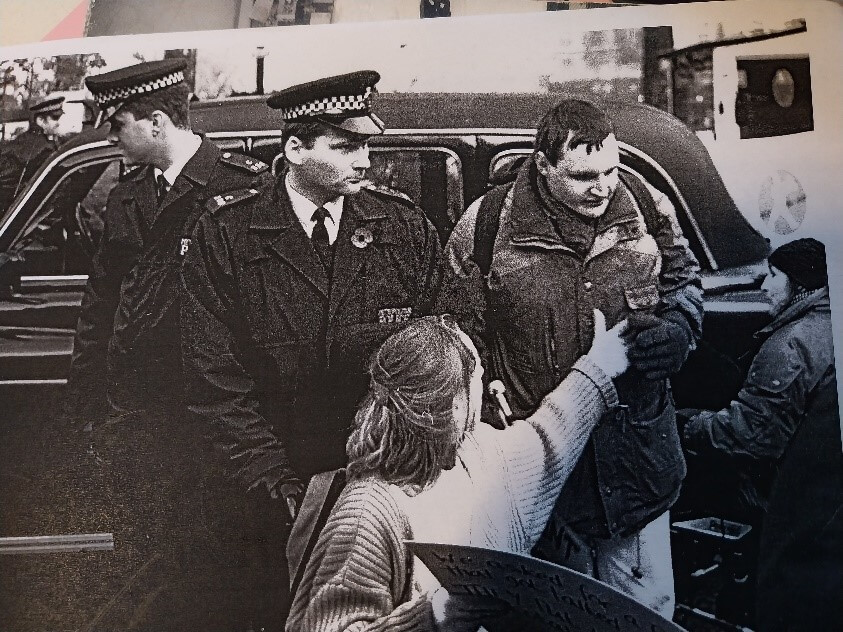
Easton Community Centre was always open to, and inclusive of, Disabled people – partly due to the support of the Community Development Worker at that time, Alison Gilchrist. The newly formed Avon Coalition of Disabled People started to meet there and ran disability equality training and other events soon after the centre opened. I was the Chair of ACODP at the time, and we secured the funding to employ our first Community Development Worker, who was the amazing Penny Germon, who is still active in managing Community Development in Bristol to this day.
Penny started at Easton Community Centre sharing the small ground floor office by the lift in 1990 with Alison, but soon outgrew it, as she was joined by other staff including Alun Davies (who now Chairs the Disability Equality Commission), and we funded further works to build a new room on the first floor landing at the front (with a great view for seeing who went in and out of the Plough where all the serious work was done.)
ACODP was known locally and nationally as a radical campaigning and community development organisation, run and controlled by Disabled People, and was the driving force behind disability politics in Bristol. Its early partnership with Easton Community Centre was crucial in this development. Highlights of its early work included:
- Hosting the ‘Tragic but Brave Road Show’ in the centre’s Main Hall in Oct 1991 (with Johnnie Crescendo and Wanda Barbara amongst others – who were recently featured as key figures in the Disabled People’s Movement in the recent Channel 4 programme ‘When Barbara met Alan’. This was the first time a major disability arts event was held in Bristol.
- Organising the first Disabled Women Celebrate event for International Women’s Day in 1991.
- Blocking the Telethon TV fundraiser in July 1992 due to their stigmatising portrayal of Disabled people.
- Running the first local Race and Disability Conference in 1993.
- Being a key driving force in the national battle to introduce anti-discrimination legislation to protect Disabled people. This included in 1991-2, demonstrating outside the office of local MP, Rob Hayward, who talked out the Civil Rights (Disabled People’s) Bill, then working with Roger Berry MP on his Early Day Motion.
- Organising an event for over 100 Disabled people in February 1993 to demand the new laws are passed.
- Taking local Disabled people to various national rallies, for example, Trafalgar Sqaure in 1994 and then launch of Avon branch of the ‘Rights Now’ campaign, which eventually did lead to the passing of an inadequate Disability Discrimination Act in 1995.Then in 1996 joining hundreds of Disabled people for a mass national lobby calling for its amendment. Finally, the Labour Government in 1997 amended it to cover education and transport.
ACODP also ran training courses, support and awareness groups for Disabled people, and in 1995 became WECODP (West of England Coalition of Disabled People) and gave birth to the West of England Centre for Inclusive Living (WECIL), which provides services in the region to Disabled children and adults to this day. So much of ACODP’s history is entwined with Easton Community Centre, and installing a new lift brings us full circle.

Further information on the history of Disability Activism in Bristol is available on Disability Activism Bristol | Local Learning and in an exhibition in the MShed, as part of a project coordinated by Bristol Disability Equality Forum and Bristol Museums.
